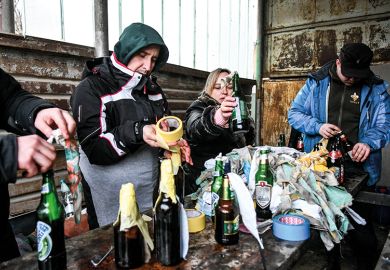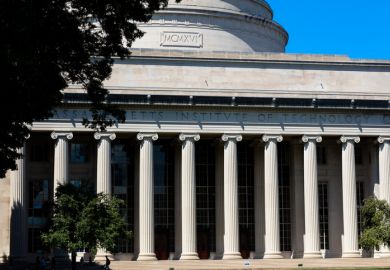The Massachusetts Institute of Technology has ended a controversial decade-long partnership aimed at creating a Silicon Valley scale industrial-academic development near Moscow, as a protest against the invasion of Ukraine.
“This step is a rejection of the actions of the Russian government in Ukraine,” MIT said in a statement on its relationship with the Skolkovo Institute of Science and Technology, also known as Skoltech.
“We take it with deep regret because of our great respect for the Russian people and our profound appreciation for the contributions of the many extraordinary Russian colleagues we have worked with.”
MIT had approved a five-year extension of the Skoltech collaboration in 2019, despite some outside concerns that it could be trading national security and humanitarian concerns for financial gain.
With the Skoltech project, MIT aimed in 2011 to help build on the western outskirts of Moscow a multibillion-dollar version of Silicon Valley. Its work in that direction included extensive efforts at recruiting and sharing students and faculty.
MIT has described that and previous partnerships in other countries with repressive governments – including China, Singapore and the United Arab Emirates – as attempts to use the power of education to modernise. The institution has also been accused of a money-oriented worldview that has led it into highly contentious relationships with wealthy but controversial partners that include the Saudi government and convicted sex offender Jeffrey Epstein.
In outlining his decision to end the Skoltech project, MIT’s president, Rafael Reif – who announced earlier this month that he will be stepping down later this year – offered both historical and personal context.
“The programme sprang from a particular historical moment,” Professor Reif said in a note to the MIT community. “In 2011, the United States was striving to ‘reset’ its Russia relationship. At the same time, Russia was seeking to establish an innovation-based economy, and MIT faculty were eager to create new research alliances in areas of shared interest with top colleagues around the world, including Russia, a nation with a pool of exceptional scientific talent.”
Professor Reif also noted his family history, as the Venezuelan-born son of Jewish refugees, including a father born in the western part of Ukraine before its independence from Russia. “For me,” he wrote, “seeing so many Ukrainian families fleeing their homes in advance of hostile forces has inescapable personal echoes.”
In the 2019 announcement of its decision to renew the Skoltech relationship, MIT included comments from a professor of biology, Phillip Sharp, saying the MIT-Skoltech relationship “serves many positive societal purposes even though we may not agree with the policies of the Russian government”.
Professor Sharp added at the time: “The scientific exchange helps citizens of the two countries to become better acquainted, making it more difficult for people to demonise one another.”
Russia’s invasion of Ukraine has now led to calls throughout Western higher education to reassess and cut off ties to Russia and its people. In the US, several members of Congress have suggested that Russian students be evicted from the US as punishment for the Ukraine invasion.
Register to continue
Why register?
- Registration is free and only takes a moment
- Once registered, you can read 3 articles a month
- Sign up for our newsletter
Subscribe
Or subscribe for unlimited access to:
- Unlimited access to news, views, insights & reviews
- Digital editions
- Digital access to THE’s university and college rankings analysis
Already registered or a current subscriber?








